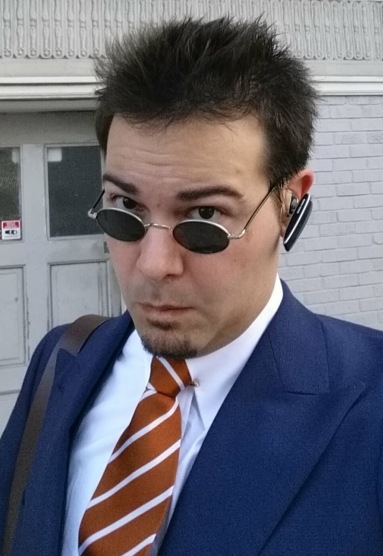
I am a Texan born to Californian parents.
As something of a stranger in a strange land, this dissonant identity first sparked my interest in government and governance because I was sure that the knee-jerk mistrust some of my neighbors had of “The Government” could not possibly be a full understanding of the place of government and politics in society. An avid fan of science fiction, my interest in the politics of technology grew from the speculative worlds of such authors as Kim Stanley Robinson, K. A. Applegate, Neal Stephenson, Anne McCaffrey, Issac Asimov, and Frank Herbert. The most frequent question I used to get asked about my research is “How is this politics?” With formative readings such as those above, how could one not think about the political implications of technology and its governance? And indeed, in a post-Cambridge Analytica, post-GDPR world, I seem like less of an oddity than once I might have.
Professionally, I have gained a range of experience across institutions, geographies, and disciplinary boundaries. I attended The University of Texas at Austin  for my bachelor’s degrees, majoring in Physics and Government with a minor in Mathematics. While a Physics major, I worked for a summer as a Material Physics lab assistant at Universität Würzburg in Germany.
for my bachelor’s degrees, majoring in Physics and Government with a minor in Mathematics. While a Physics major, I worked for a summer as a Material Physics lab assistant at Universität Würzburg in Germany. My senior thesis for Special Departmental Honors in Government investigated why countries send people into space. I found that because there is quite literally nothing up there for people to do unless we put it there, successful programs must be justified based on their impact back on Earth (whether national prestige for the Cold War US of the 1960s or furthering Deng Xiaoping’s drive for economic development in 1990s China).
My senior thesis for Special Departmental Honors in Government investigated why countries send people into space. I found that because there is quite literally nothing up there for people to do unless we put it there, successful programs must be justified based on their impact back on Earth (whether national prestige for the Cold War US of the 1960s or furthering Deng Xiaoping’s drive for economic development in 1990s China).
After graduating from UT, I moved to Chicago to complete a Master of Arts in Social Science (MAPSS) degree at the University of Chicago, focusing on Political Science and Science and Technology Studies (STS). For my MAPSS thesis, I investigated the congressional hearings which led to the formation of the National Science Foundation in the 1940s, finding an eerie parallel to the rhetoric employed by Senator Tom Coburn (R-OK) 70 years later when he attempted to exclude the social sciences from NSF funding in 2011 (and impotently succeeded in 2013). Indeed, staunch conservative Clarence J. Brown (R-OH, average ADA score for the period of 3.9 on a 100 point scale), famously declaimed in 1946 that “the average American just does not want… a lot of short-haired women and long-haired men messing into everybody’s personal affairs and lives.” Yet despite the heated rhetoric on the assumed coiffures of social scientists, I found that neither liberals nor conservatives expended political resources to exclude the social sciences from the NSF when it was initially established.
For my MAPSS thesis, I investigated the congressional hearings which led to the formation of the National Science Foundation in the 1940s, finding an eerie parallel to the rhetoric employed by Senator Tom Coburn (R-OK) 70 years later when he attempted to exclude the social sciences from NSF funding in 2011 (and impotently succeeded in 2013). Indeed, staunch conservative Clarence J. Brown (R-OH, average ADA score for the period of 3.9 on a 100 point scale), famously declaimed in 1946 that “the average American just does not want… a lot of short-haired women and long-haired men messing into everybody’s personal affairs and lives.” Yet despite the heated rhetoric on the assumed coiffures of social scientists, I found that neither liberals nor conservatives expended political resources to exclude the social sciences from the NSF when it was initially established.
Having completed my MA, I worked for several years in the private sector for a consultant firm which created e-commerce data and platforms for industrial supply companies. As a Ph.D. candidate at the University of California, Berkeley in the Political Science department, I am working on a dissertation tentatively titled: “More than Mere Dead Weight: How Regulators Respond to Disruptive Technological Innovation in Advanced Industrial Democracies.” In my spare time, I enjoy the political intricacies of being an avid car enthusiast living in California with a (legally) modified car.
in the Political Science department, I am working on a dissertation tentatively titled: “More than Mere Dead Weight: How Regulators Respond to Disruptive Technological Innovation in Advanced Industrial Democracies.” In my spare time, I enjoy the political intricacies of being an avid car enthusiast living in California with a (legally) modified car.